Could you tell us what commitments the British Government has made to support Vietnam in the financial sector?
In recent times, the British Government has been actively supporting Vietnam's financial services sector with various initiatives and programs. Specifically, the British Government has supported Vietnam in establishing an international financial center in Ho Chi Minh City and a regional financial center in Da Nang by bringing experienced experts and specialized knowledge from the UK to Vietnam to share on these issues.
Most recently, Deputy Prime Minister Nguyen Hoa Binh visited the UK to discuss the construction of an international financial center (March 2025). These financial centers will play an important role in developing Vietnam's financial infrastructure.
In particular, through the Growth Gateway Programme, the UK has implemented a project with banks and fintech companies from Vietnam and the UK to find solutions to narrow the trade finance gap in Vietnam. This project, co-organized by the British Consulate and Boston Consulting Group, discussed the Trade Finance Registry (TFR) data platform. This is an important annual event, focusing on promoting trade cooperation in the fields of science, technology, and innovation in Southeast Asia.
Experts from both countries discussed the challenges and opportunities in trade finance in Vietnam and TFR as a potential solution. Over 10 banks in Vietnam and 4 UK fintechs then presented practical solutions across the TFR value chain. This collaborative effort underscores the strong bilateral relationship between the UK and Vietnam, as well as our shared commitment to promoting financial inclusion and digital transformation.
How do you evaluate the role of the trade finance data platform in Vietnam's current economic and trade development?
First of all, it can be affirmed that the trade finance data platform plays an important role in improving transparency in trade finance transactions, reducing fraud, especially duplicate financing fraud and forged documents, as well as simplifying trade finance processes in Vietnam.
In Vietnam, TFR can act as a hedge to protect the banking system in Vietnam and promote responsible trade growth. Furthermore, TFR will be catalytic. By establishing a common infrastructure, TFR connects banks to a common platform and unlocks innovation in digital trade finance. Vietnam is at a turning point in its trade and finance landscape.
With an estimated $700 billion in international trade, Vietnam has emerged as one of the most dynamic economies in ASEAN. To sustain this growth momentum, Vietnam must continue to modernize its financial infrastructure, ensuring that businesses, especially micro, small and medium enterprises (MSMEs), which are considered the “backbone” of the economy, can fully participate in the global market.
A significant challenge lies in Vietnam’s trade finance gap of up to US$90 billion, accounting for a quarter of ASEAN’s total gap. Addressing this gap is not only a financial issue but also a strategic priority. The Vietnamese government is actively promoting financial inclusion, economic resilience and digital transformation to create a more transparent, efficient and globally integrated banking and finance ecosystem. Meanwhile, Vietnam’s financial institutions are working hard to turn to innovative solutions to close this gap.
As a world leader in financial services, the UK is uniquely positioned to support Vietnam’s efforts, providing experience and knowledge in the financial sector such as document digitization, AI-based risk assessment, digital identity verification and blockchain-based trade finance solutions. This is a solid foundation for the UK Government to accompany and support the Vietnamese Government in its progress towards building an international financial center.
So, what should Vietnam focus on to build and deploy an effective trade finance data platform, Madam?
Well-established platforms from other markets have demonstrated the ability of TFR to detect duplicate financing, authenticate documents and support end-to-end trade flows. With appropriate standardization and regulatory adjustments, these solutions can be tailored to meet the specific needs of Vietnam. But most importantly, there is a strong consensus on the need for continued engagement and collaboration in this TFR project. This is especially true if leading banks commit to further developing the trade finance data platform and implementing it effectively. This would pave the way for a controlled sandbox or pilot program, allowing stakeholders to test TFR in practice and ensure its suitability before it is rolled out more broadly.
I would like to stress that the leadership and management of the State Bank of Vietnam, together with the participation of leading commercial banks both domestic and foreign, are essential for the smooth and successful implementation of the TFR. From the experience of other countries, the more banks involved in the project, the more successful the TFR will be. With the current volatile global trade situation, the UK Government’s support for Vietnam’s financial sector plays a role in promoting and affirming Vietnam’s position as a reliable partner and strengthening the bilateral relationship between the UK and Vietnam in these volatile times.
Thank you!
Source: https://thoibaonganhang.vn/nen-tang-du-lieu-tai-tro-thuong-mai-cong-cu-dac-luc-xay-dung-trung-tam-tai-chinh-quoc-te-162989.html




![[Photo] Readers line up to visit the photo exhibition and receive a special publication commemorating the 135th birthday of President Ho Chi Minh at Nhan Dan Newspaper](https://vphoto.vietnam.vn/thumb/1200x675/vietnam/resource/IMAGE/2025/5/17/85b3197fc6bd43e6a9ee4db15101005b)
![[Photo] Nearly 3,000 students moved by stories about soldiers](https://vphoto.vietnam.vn/thumb/1200x675/vietnam/resource/IMAGE/2025/5/17/21da57c8241e42438b423eaa37215e0e)





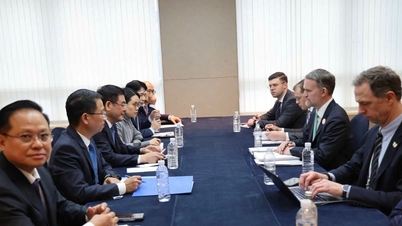
















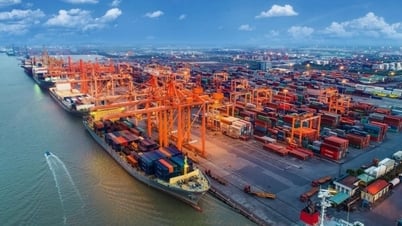


















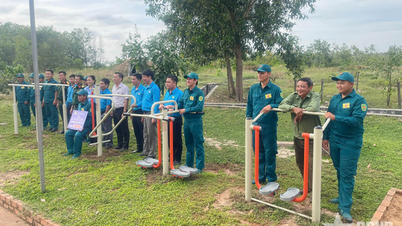



















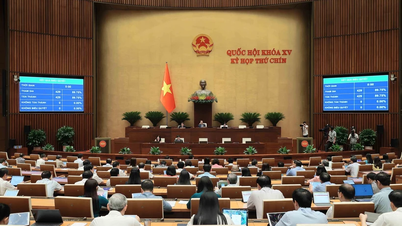










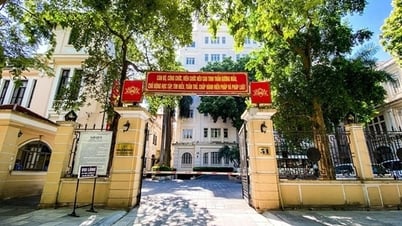






















Comment (0)